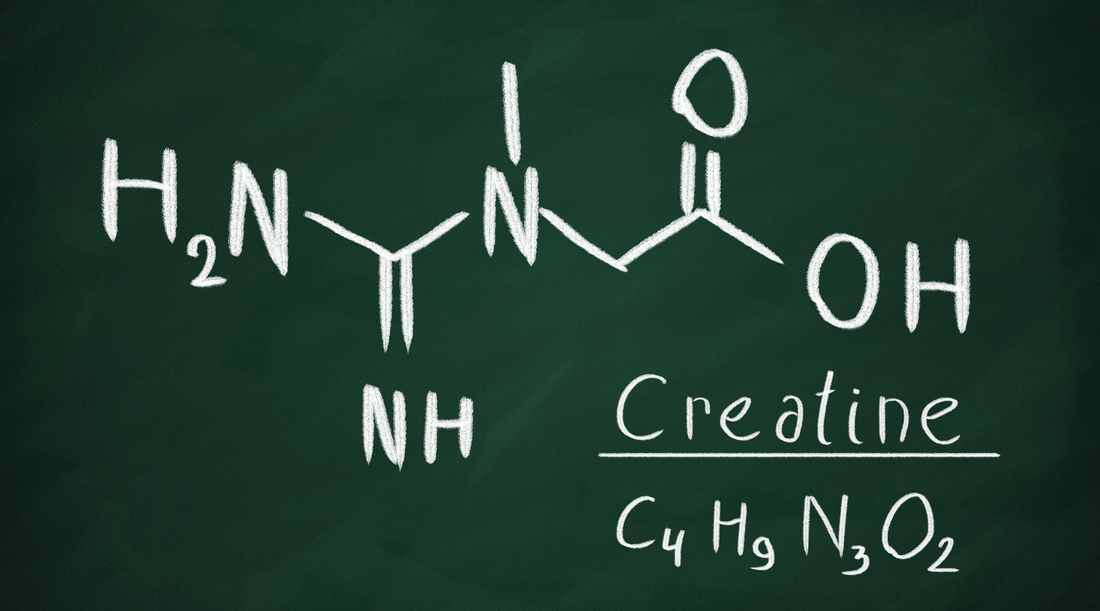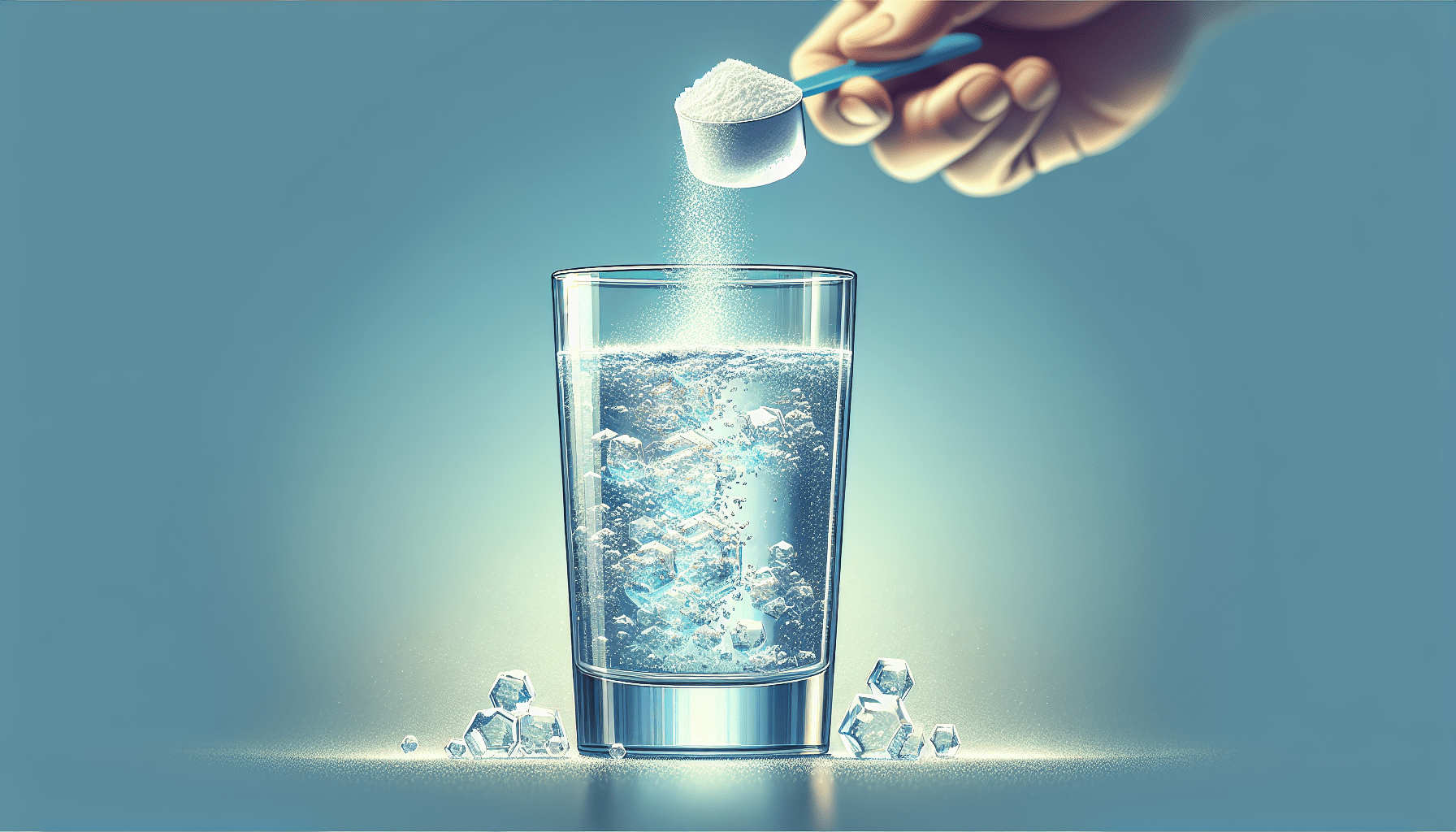
Creatine And Hydration: The Importance Of Water Intake
Share
Have you ever wondered about the relationship between creatine supplementation and hydration? Whether you're an avid athlete or someone just stepping into the world of fitness, understanding how creatine works and the significance of maintaining proper hydration can substantially impact your performance and overall well-being.

What is Creatine?
Creatine is a naturally occurring compound found mainly in your muscles and brain. It is derived from amino acids and plays a critical role in producing energy during high-intensity, short-duration activities like weight lifting and sprinting. Approximately 95% of the body's creatine is stored in skeletal muscles, with the remainder found in the brain, heart, and other tissues.
Sources of Creatine
Your body can acquire creatine in two primary ways:
- Endogenous Production: Your liver, kidneys, and pancreas synthesize creatine from amino acids glycine, arginine, and methionine.
- Dietary Intake: Foods like red meat, poultry, and fish are rich in creatine.
However, achieving optimal levels through diet alone might be challenging, particularly for vegetarians and vegans. This is where creatine supplements come into play, providing an easy and effective means to increase your creatine stores.
The Role of Creatine in Exercise and Muscle Function
When you engage in high-intensity activities, your body primarily relies on adenosine triphosphate (ATP) for energy. ATP is quickly depleted, usually within 10 seconds of exertion. Creatine phosphate comes to the rescue by donating a phosphate group to ADP (adenosine diphosphate), rapidly regenerating ATP and enabling sustained, high-intensity performance.
Benefits of Creatine Supplementation
- Enhanced Muscle Mass: Creatine promotes muscle growth by increasing water content within muscle cells, which stimulates muscle protein synthesis.
- Improved Strength: It allows for greater workloads and more extended periods of high-intensity training.
- Faster Recovery: Creatine aids in quicker recovery between workouts by reducing muscle cell damage and inflammation.
The Link Between Creatine and Hydration
While creatine offers many well-documented benefits, its impact on hydration and fluid balance is equally significant yet often misunderstood.
How Creatine Affects Hydration
The mechanism through which creatine improves muscle mass involves increasing water retention within muscle cells. This osmotic effect draws water into the cells, creating a more hydrated and anabolic (growth-promoting) environment. However, this also means that your overall water requirement increases.
Risks of Dehydration
When supplementing with creatine, failing to adequately hydrate can lead to several problems:
- Impaired Performance: Dehydration can negatively impact your strength, endurance, and overall exercise capacity.
- Muscle Cramps: Although not universally observed, some people experience muscle cramps when they take creatine without sufficient hydration.
- Heat-Related Illnesses: Dehydration increases your risk for heat exhaustion and heat stroke, particularly during intense workouts in hot environments.
How Much Water Should You Drink?
To maintain optimal hydration levels while using creatine, you need to be conscious of your water intake.
General Guidelines
A commonly recommended guideline is that you should drink an additional 16-18 ounces (about 500 ml) of water for every 3-5 grams of creatine consumed. However, requirements can vary based on factors like body size, activity level, and environment.
Daily Water Intake Recommendations
| Activity Level | Water Intake Without Creatine | Water Intake With Creatine (per 3-5g) |
|---|---|---|
| Low (Sedentary) | 2 liters (8 cups) | 2.5 liters (10 cups) |
| Moderate | 2.5 liters (10 cups) | 3 liters (12 cups) |
| High (Active) | 3 liters (12 cups) | 3.5 liters (14 cups) |
Additional Hydration Tips
- Monitor Urine Color: Pale yellow urine typically indicates good hydration, while dark yellow suggests dehydration.
- Hydrate Before Exercise: Make sure to drink water before, during, and after your workouts to compensate for fluid lost through sweat.
- Use Electrolytes: Sports drinks containing electrolytes can help maintain fluid balance, especially during prolonged sessions or in hot climates.
Creatine Loading and Hydration
Some people follow a "loading phase" when starting creatine supplementation to saturate muscle stores rapidly. This phase usually involves taking higher doses (20 grams per day, divided into 4 doses) for 5-7 days, followed by a "maintenance phase" of 3-5 grams per day.
Why Loading Increases Water Needs
The loading phase involves an increased osmotic activity within muscle cells, which requires more water to achieve proper hydration. Failing to increase your water intake during this phase can lead to dehydration and its associated risks.
Addressing Common Myths
Myth 1: Creatine Causes Water Retention and Weight Gain
While it's true that creatine draws water into muscle cells, this "weight gain" isn't the same as fat gain. The added weight is intracellular water, which actually contributes to improved muscle function and growth. Therefore, the weight gain should be seen as a positive outcome for your fitness goals.
Myth 2: Creatine Causes Kidney Damage
There's no substantial evidence supporting the claim that creatine damages kidneys when taken within recommended dosages. However, for individuals with pre-existing kidney conditions, it’s advisable to consult a healthcare provider before beginning supplementation.
Myth 3: Creatine is Unnecessary with a Good Diet
Although a balanced diet can provide creatine, it's unlikely to achieve the levels that benefit high-intensity athletic performance. Creatine supplementation ensures optimal muscle creatine stores, which is particularly important for vegetarians and vegans who have lower baseline creatine levels.
Special Considerations
Populations with Increased Needs
- Athletes and Bodybuilders: Due to high-intensity training, these individuals have increased creatine and hydration needs.
- Older Adults: Aging muscle exhibits different metabolic characteristics, and creatine supplementation combined with adequate hydration can help mitigate muscle loss and improve function.
- Vegetarians/Vegans: As mentioned, plant-based diets typically provide lower levels of creatine, making supplementation more beneficial for maintaining muscular health and performance.
Potential Side Effects
Although creatine is generally safe for most people, some may experience minor side effects such as gastrointestinal discomfort, muscle cramps, or dehydration. Ensuring adequate hydration can help minimize these issues.
Consulting Healthcare Providers
Before you embark on creatine supplementation, especially if you have any existing medical conditions, it’s wise to speak with a healthcare professional. They can provide personalized advice tailored to your health status and fitness goals.
Best Practices for Creatine Supplementation and Hydration
- Gradual Introduction: Start with a small dose of creatine and gradually increase it to allow your body to adapt.
- Consistent Hydration: Make it a habit to drink water consistently throughout the day, rather than trying to compensate with large amounts at once.
- Monitoring Your Body: Pay close attention to how your body responds to both creatine and your water intake – this will help you adjust your routines for optimal performance.
- Balanced Diet: Ensure your overall diet supports your hydration needs, including fruits and vegetables that are high in water content.
Conclusion
Understanding the intricate relationship between creatine and hydration can significantly enhance your exercise performance and overall health. By ensuring you drink enough water when using creatine supplements, you can fully harness the benefits of this powerful compound. Integrating these insights into your daily routine allows you to achieve your fitness goals more effectively while safeguarding your well-being.
